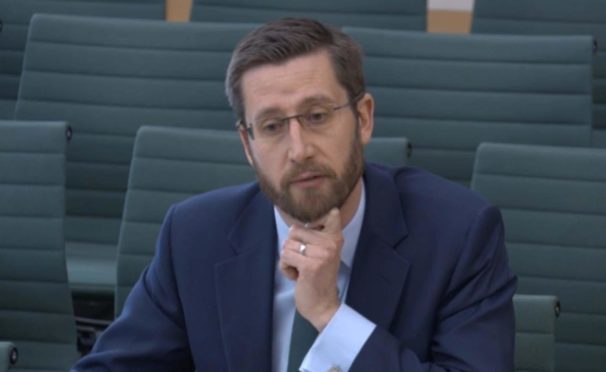Boris Johnson’s top civil servant has said the preservation of the Union is now “at the forefront of policymaking in Whitehall”.
Cabinet Secretary Simon Case told a House of Lords committee the Covid-19 pandemic had changed how the civil service operates and had resulted in much greater cooperation between Westminster and the devolved governments.
Mr Case said “the world of devolve and forget” had ended, adding that there is now a much greater understanding of devolution among mandarins.
He said: “If you’d asked me only a few years ago did I think that devolution or the Union was at the forefront of policymaking in Whitehall I would have said probably not.
“But actually, I think the experience of both Brexit and obviously more recently Covid means that so much more of government, so much more of policy, involves consideration of devolution or union questions much earlier in the process.
“In everything that we do we should be thinking about how it impacts on the Union.”
Mr Case welcomed the recommendations put forward by the Dunlop Review, which was tasked with investigating how the Union could be strengthened after MPs concluded relations had “broken down” between the UK and Scottish governments, but stopped short of backing all of its proposals.
‘Front and centre’
The Cabinet Secretary rejected the need for a constitutional affairs minister, to head up Union strategy, saying “first and foremost, the prime minister is responsible for thinking through Union matters”.
He added: “The reality is that you are going to see the prime minister front and centre of maintaining the integrity of the Union and actually, more importantly, getting all of the constituent parts of the United Kingdom operating fully together for the benefit of everybody who lives and works inside the United Kingdom.”
Mr Case, appearing before the Lords’ constitution committee, also rejected proposals for a separate Scottish civil service.
He said: “This government’s position is very clear, we are best operating as one UK civil service across Westminster, UK Government, as well as Scotland and Wales.
“In talking to colleagues currently working in Scotland and Wales and elsewhere, there’s certainly no clamour from civil servants for this; they think they benefit from being part of the wider UK civil service.”


